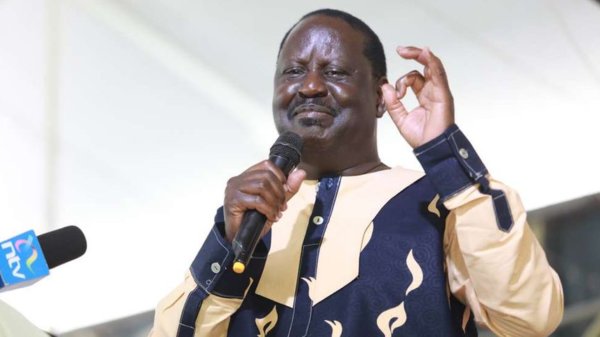Azimio la Umoja leader Raila Odinga has taken aim at former Independent Electoral and Boundaries Commission (IEBC) chairman Wafula Chebukati, expressing dissatisfaction with the handling of the 2022 presidential elections.
In a tweet on Tuesday, July 25, Raila disclosed that the Azimio coalition had collected over eight million signatures on the Tumechoka website, surpassing the number of votes President William Ruto received in the 2022 general election.
“Mr. Ruto, according to Chebukati, supposedly got 7.1 million votes. Already we have over 8 million signatures,” remarked Raila.
The opposition leader launched the Tumechoka initiative on Tuesday, July 11, and in just a short period, the initiative managed to collect an impressive 8,523,614 signatures.
The Azimio coalition is now setting its sights on reaching a target of 15 million signatures, which they intend to use as a sign of no confidence in the current Kenya Kwanza government, led by President Ruto and his Deputy Rigathi Gachagua.
“We will now collect fifteen million signatures as a sign of no confidence in the illegitimate administration of Ruto and Gachagua,” announced Raila on July 10.
However, the signature collection process has not been without its challenges. The Azimio coalition reported facing numerous attacks on its website.
Despite these disruptions, they have managed to mitigate the issues and keep the initiative on track.
“We have reported attacks on our website, and we are ahead of them. We are well mitigated because we are the legitimate government, so to speak. We can’t fail to deal with them, they keep attacking, but they cannot penetrate us,” stated former Murang’a Governor Mwangi Wa Iria while addressing the media at the Stephen Kalonzo Musyoka command center in Karen.
Nairobi Senator Edwin Sifuna also confirmed that they had faced over 1,000 attacks on the signature collection website back in June.
The Tumechoka initiative has ignited political fervor, with the opposition keen on using the collected signatures to push for the removal of the current government. It represents a powerful expression of discontent and highlights the growing determination of the Azimio coalition to challenge the status quo.




































































